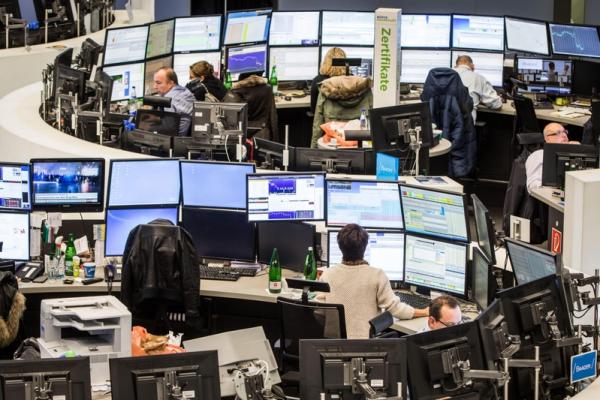By Vikram Subhedar and Kit Rees
LONDON (Reuters) - UK and euro zone stock markets, which have so far enjoyed a rebound from last summer's lows in nearly equal measure, could soon part ways on the back of diverging investor sentiment as a protracted tussle on the terms of Brexit begins.
On Monday, French bluechips surged as much as 5 percent and Germany's DAX hit a record high while measures of euro zone market volatility slumped as investors cheered hopes of abating political risks following a market-friendly result in the first round of France's presidential election.
Centrist Emmanuel Macron took a big step towards leading his country, with polls now putting him comfortably ahead of far-right leader Marine Le Pen in the May 7 run-off.
The election result further stoked the growing optimism for European shares with major brokers pushing the case for investors to pile further into the region's relatively cheaper valued stock markets, particularly its banks.
UK stock markets rose too with the FTSE 100 (FTSE) of global bluechips up 1.8 percent on Monday. However, the underperformance on the day of more domestic focussed midcaps (FTMC) hinted at a turn in investors' appetite as Britain's economy sends mixed signals about its readiness for Brexit.
“In a way, Brexit has helped concentrate minds in Europe on the uncertainties over Brexit and the speed bumps which (Britain was) likely to have to go over the next couple of years can only add to the uncertainty,” said Nick Peters, multi asset portfolio manager at Fidelity International.
While overall economic growth has confounded forecasts of a painful hit after last year's Brexit vote, rising worries over consumer spending, a lynchpin of the UK economy, as inflation bites into wages has become a key concern.
British retail sales posted their biggest quarterly fall in seven years in the first three months of 2017, reinforcing the view that household spending was slowing sharply.
Recent surveys of purchasing managers paint contrasting pictures of the outlook for manufacturing industries in the euro zone and in the UK, with the former on firmer footing as this graphic shows: http://reut.rs/2pWJLJe
Similarly, analyst expectations of corporate earnings are turning south in the UK and have continued to improve for rest of the continent, according to Thomson Reuters data. http://reut.rs/2p957Qt
"With inflation expectations increasing, negative real wage growth could have a knock-on effect on GDP growth and consumer confidence," said Mark Martin, head of UK Equities at Neptune Investment Management in London.
Martin also expects sterling's <GBP=> strengthening to halt at current levels dimming his appetite for smaller and mid-sized local firms more geared to the UK economy.
For graphics on UK vs euro zone PMIs click on http://reut.rs/2pWJLJe
For graphics on UK vs euro zone analyst revisions click on http://reut.rs/2p957Qt
For graphics on UK stocks vs peers click on http://reut.rs/2pvx4EX
